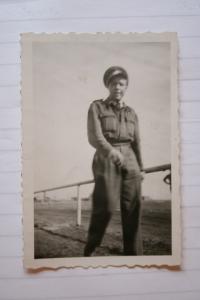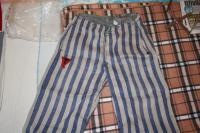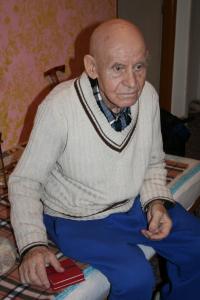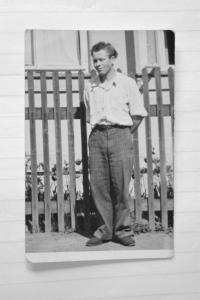My father remained in the old camp and I have never seen him again

Download image
Miroslav Knol was born on January 1, 1925, in Velká Bystřice. His father was a factory worker and his mother worked in agriculture. He grew up together with his three siblings. The decision of one of his brothers later proved fateful for him. After completing higher elementary school, Miroslav learnt the carpenter’s trade. On September 18, 1942, he was suddenly arrested. It turned out that he was arrested because of the activities of his brother, who had reached England via Poland and France, and served in the No. 311 Bomber Squadron. The family was completely unaware of this. Miroslav and his parents were taken to prison. Together they were sent to Brno, and Miroslav and his father were later transported to Auschwitz while his mother went to the internment camp in Svatobořice. When they arrived to Auschwitz Miroslav saw his father for last time. He was placed in the Birkenau camp where he worked on the construction of other wooden barracks. A large transport of prisoners was dispatched from Auschwitz to Buchenwald eight months later, and Miroslav was included in it. Conditions in the concentration camp Buchenwald were better. Czechs were usually assigned to work in Weimar in a factory which produced quick-firing guns. The Allied air raids became increasingly frequent towards the end of the war. Miroslav suffered a serious injury during one of them, so he witnessed the liberation while he was in hospital. After his return to Czechoslovakia he suffered from persisting illness, which evolved into tuberculosis. He eventually recovered and married in 1948. He worked in the factory, Moravia, just like his father.



